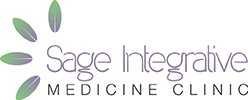NAD, or nicotinamide adenine dinucleotide, is a critical coenzyme found in every cell of your body. It’s involved in energy metabolism and plays a pivotal role in various biological processes. As we age, NAD levels can dwindle, leading to a decline in cellular function and overall health. Thankfully, there are natural and effective methods to boost NAD production without the need for supplements. In this blog, we’ll uncover some simple yet powerful lifestyle changes and dietary choices that can help you maintain healthy NAD levels and enhance your well-being.
1. Incorporate More Whole Foods into Your Diet
Eating whole foods is one of the simplest yet most effective ways to support NAD production in your body. Whole foods, such as fruits, vegetables, nuts, and lean proteins, are nutrient-dense and provide essential vitamins and minerals that promote cellular health. These foods are packed with antioxidants that can help mitigate oxidative stress, thereby protecting your cells and facilitating smoother metabolic processes. Consider incorporating a variety of colors in your diet to ensure you’re getting a wide range of nutrients.
Additionally, focusing on plant-based foods can enhance your NAD levels. Foods like leafy greens, beans, and whole grains contain niacin, a precursor to NAD. By regularly consuming these whole food sources, you not only improve your overall health but also create an environment conducive to higher NAD production. Preparing meals at home with whole ingredients can be a fun and creative way to boost both your diet and your energy levels throughout the day.
2. Prioritize Regular Exercise
Engaging in regular physical activity is crucial for optimizing NAD levels. Exercise stimulates the production of mitochondria, the powerhouses of our cells, which in turn helps to generate more NAD. When you exercise, your body requires more energy, leading to an increased demand for NAD. Activities like running, swimming, or even a brisk walk can significantly enhance cellular energy metabolism.
Moreover, adding intervals of higher intensity into your workouts can have an even more profound impact on NAD production. High-Intensity Interval Training (HIIT) has been shown to stimulate NAD levels due to the sheer metabolic demand it places on the body. Thus, finding an exercise routine you enjoy that maintains consistency can be an invaluable tool in your journey towards better health and increased NAD.
3. Get Sufficient Sleep to Restore Energy
Sleep is often underrated yet vital for our health and for replenishing NAD levels. During sleep, your body undergoes various restorative processes, including the synthesis of NAD. Insufficient sleep can lead to decreased NAD levels, impacting energy metabolism and leading to fatigue. Therefore, prioritizing quality sleep each night can drastically improve not only your NAD levels but also your overall well-being.
Aim for 7–9 hours of uninterrupted sleep per night. Establish a calming bedtime routine to signal to your body that it’s time to wind down. By creating a dark, quiet, and cool environment, you can optimize your sleep quality. Remember, a well-rested body is better equipped to produce NAD efficiently, enabling you to face the day with vitality and energy.
4. Practice Intermittent Fasting
Intermittent fasting is a powerful approach that has gained popularity not only for weight management but also for its potential to enhance NAD production. By cycling periods of eating and fasting, you can encourage your body to shift its energy utilization methods. This process can increase the efficiency of NAD production as your cells adapt to using energy stores.
Research suggests that fasting may enhance the activation of certain enzymes involved in NAD synthesis. Additionally, the cell repair and regeneration processes that occur during fasting can further support healthy NAD levels. If you’re new to fasting, start slow—perhaps a 16:8 method where you fast for 16 hours and eat within an 8-hour window. This can be a manageable and sustainable approach to incorporating fasting for enhanced health.
5. Include Foods Rich in Niacin
Including foods rich in niacin—also known as vitamin B3—is an excellent way to boost your body’s NAD supply. Sources of niacin include fish, poultry, beef, legumes, and whole grains. These foods play a crucial role in the conversion of niacin to NAD, making it essential for incorporation into your diet if you aim to enhance NAD levels.
Incorporate surprisingly delicious options such as sunflower seeds and mushrooms, which are not only rich in niacin but also versatile ingredients. Adding these to salads, smoothies, or stir-fries can help elevate your meals while supporting NAD production. The benefits of emphasizing niacin-rich foods extend beyond energy levels, positively affecting skin health and neurological function as well.
6. Manage Stress Through Mindfulness Practices
High stress levels can negatively impact your body’s ability to produce NAD, making stress management techniques essential for overall health. Practices such as mindfulness, meditation, and deep-breathing exercises can help reduce stress and promote a calmer state of being. By incorporating these practices into your daily routine, you can create a more balanced emotional and physiological environment.
Mindfulness allows you to focus on the present moment, reducing anxiety and fostering emotional resilience. Consider setting aside a few minutes each day for meditation or practicing gratitude. Not only will these practices support NAD production, but they can also enhance your overall outlook on life, making you feel more energized and engaged.
7. Stay Hydrated for Optimal Cellular Function
Staying hydrated is a crucial factor in maintaining optimal cellular function and supporting NAD production. Water plays a vital role in every bodily process, including metabolism and energy production. Dehydration can lead to decreased energy levels and hinder the body’s ability to convert nutrients into energy efficiently. Aim to drink enough water throughout the day to keep your cells well-hydrated and functioning optimally.
Consider setting daily water intake goals or using a water tracking app to ensure you’re staying hydrated. Additionally, incorporate hydrating foods into your meals, such as cucumbers, watermelon, and oranges. These not only contribute to your fluid intake but also provide essential vitamins and minerals that further support NAD levels.
8. Limit Alcohol Consumption
While enjoying a drink occasionally can be part of a balanced lifestyle, excessive alcohol consumption can be detrimental to NAD levels. Alcohol can interfere with the liver’s ability to produce NAD, leading to a decline in overall bodily function. Therefore, being mindful of your alcohol intake is imperative for maintaining optimal health and energy.
Try to limit your consumption to moderate levels, which is defined as no more than one drink per day for women and two for men. Consider exploring non-alcoholic alternatives and focusing on vibrant, alcohol-free beverages like herbal teas or infused waters. This way, you can enjoy social occasions while protecting your body’s natural NAD production.

